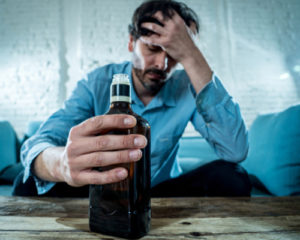Haverhill is a moderately sized city in Essex County, Mass. Along with many cities in the Northeast, it’s vulnerable to public health issues related to addiction. The opioid epidemic has caused a spike in overdose deaths in the past several years, but alcohol has been a consistent public health threat for decades.
Haverhill Alcohol Rehab Statistics
Alcohol is one of the leading causes of substance use disorder in the United States. Alcohol’s legal status and cultural acceptance as a recreational substance mean that most people have had alcohol at least once in their lives.
In the U.S., more than 86 percent of adults drank alcohol at least once. However, alcohol use problems usually come after a pattern of binge drinking or long-term misuse. More than 26 percent of adults reported binge drinking in the past month in the 2018 National Survey on Drug Use and Health.
In Boston, more than 22 percent of adults binge drink, and in Cambridge, 20 percent of adults reported excessive drinking. Binge drinkers in Massachusetts reported drinking an average of 6.5 drinks on any occasion. Binge drinking is defined as drinking four to five drinks on occasion or within two hours. Drinking excessively can increase your risk of developing an alcohol use disorder, long-term health issues, or alcohol poisoning.
Substances Commonly Mixed With Alcohol

The northeastern United States has been hit hard by the opioid epidemic of the past decade. However, alcoholism can worsen opioid issues, especially when the two drugs are used together. Both alcohol and opioids can suppress activity in the central nervous system. In excess, they can cause respiratory depression, which is when your breathing stops or slows to a dangerous degree. When alcohol and opioids are mixed, this can happen in much smaller doses than it would take if the drugs were taken individually.
Alcohol can do the same thing with other nervous system depressants, including prescriptions like benzodiazepines. Stimulants are also mixed with alcohol to increase recreational effects and to counteract side effects. However, this can dull some of the sensations that might tell you when you’ve had enough, causing people to take heavier doses than normal.
Alcohol Rehab History in Massachusetts
Massachusetts has a recent history of high alcohol poisoning rates. The U.S. Centers for Disease Control and Prevention (CDC) did a study of alcohol poisoning deaths between 2010 and 2012 and found the state was in the highest quarter of the country in terms of alcohol death rates at 11.9 per million people. As states begin to address issues related to the opioid epidemic, addiction as a whole is being addressed.
Quick Treatment Facts
Alcoholism is a common form of substance use disorder. Severe alcohol use disorders usually require treatment to effectively address. Addiction is chronic and progressive, which means that it may get worse over time if it’s ignored, and it’s unlikely to go away on its own.
Alcoholism can be treated with a combination of medical, psychological, and social therapies. Because alcohol can create dangerous withdrawal symptoms, your medical condition will be assessed, and you may need a detox. Treatment can involve medications and psychotherapies to help address substance abuse and underlying issues.
Getting Treatment at Serenity at Summit in Haverhill, MA
Our location in Haverhill, MA is our only facility that offers the complete continuum of treatment. Clients can begin with ourmedically supervised detox service before transitioning to our residential treatment stage. Afterward, you have the option of taking advantage of our Haverhill outpatient programs, which allow you to continue treatment while living at home.
What Is Addiction? Retrieved from: https://www.psychiatry.org/patients-families/addiction/what-is-addiction
Data on Excessive Drinking. Retrieved from: https://www.cdc.gov/alcohol/data-stats.htm
Alcohol Poisoning Deaths. Retrieved from: https://www.cdc.gov/vitalsigns/alcohol-poisoning-deaths/index.html
Report: Massachusetts has one of the biggest drinking problems in America. Retrieved from: https://whdh.com/news/local/report-massachusetts-has-one-of-the-biggest-drinking-problems-in-america/
Alcohol Facts and Statistics. Retrieved from: https://www.niaaa.nih.gov/publications/brochures-and-fact-sheets/alcohol-facts-and-statistics

